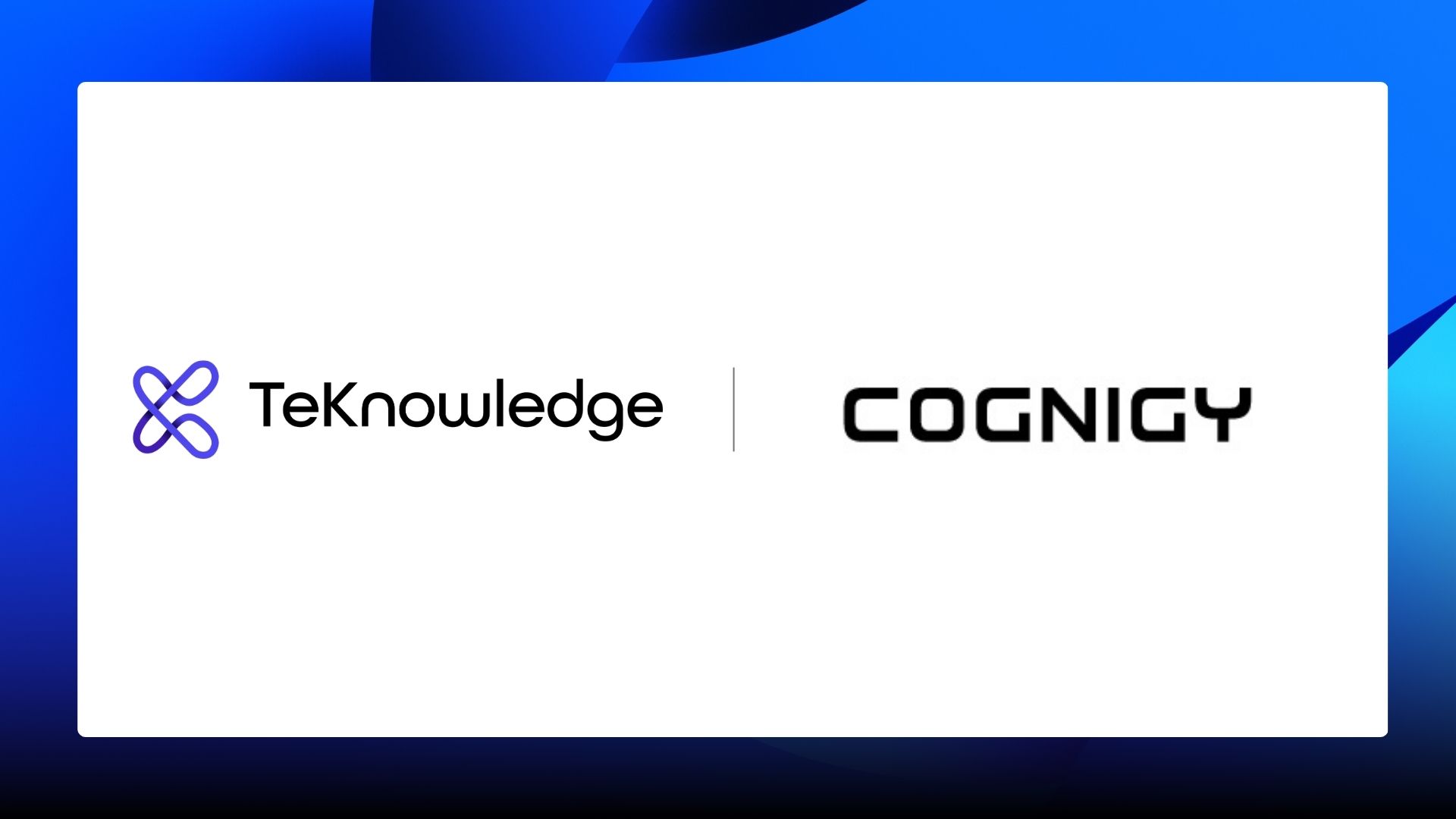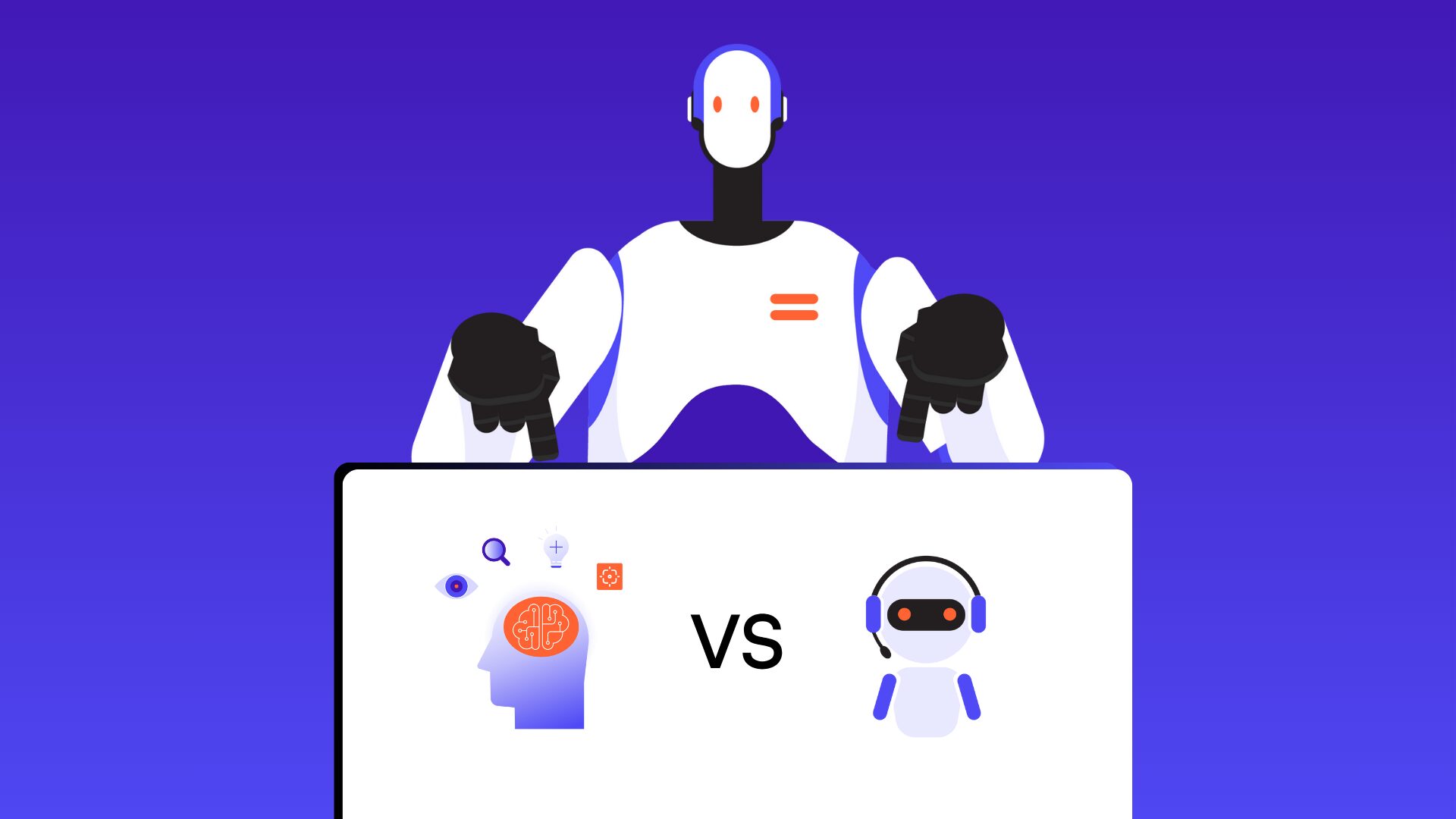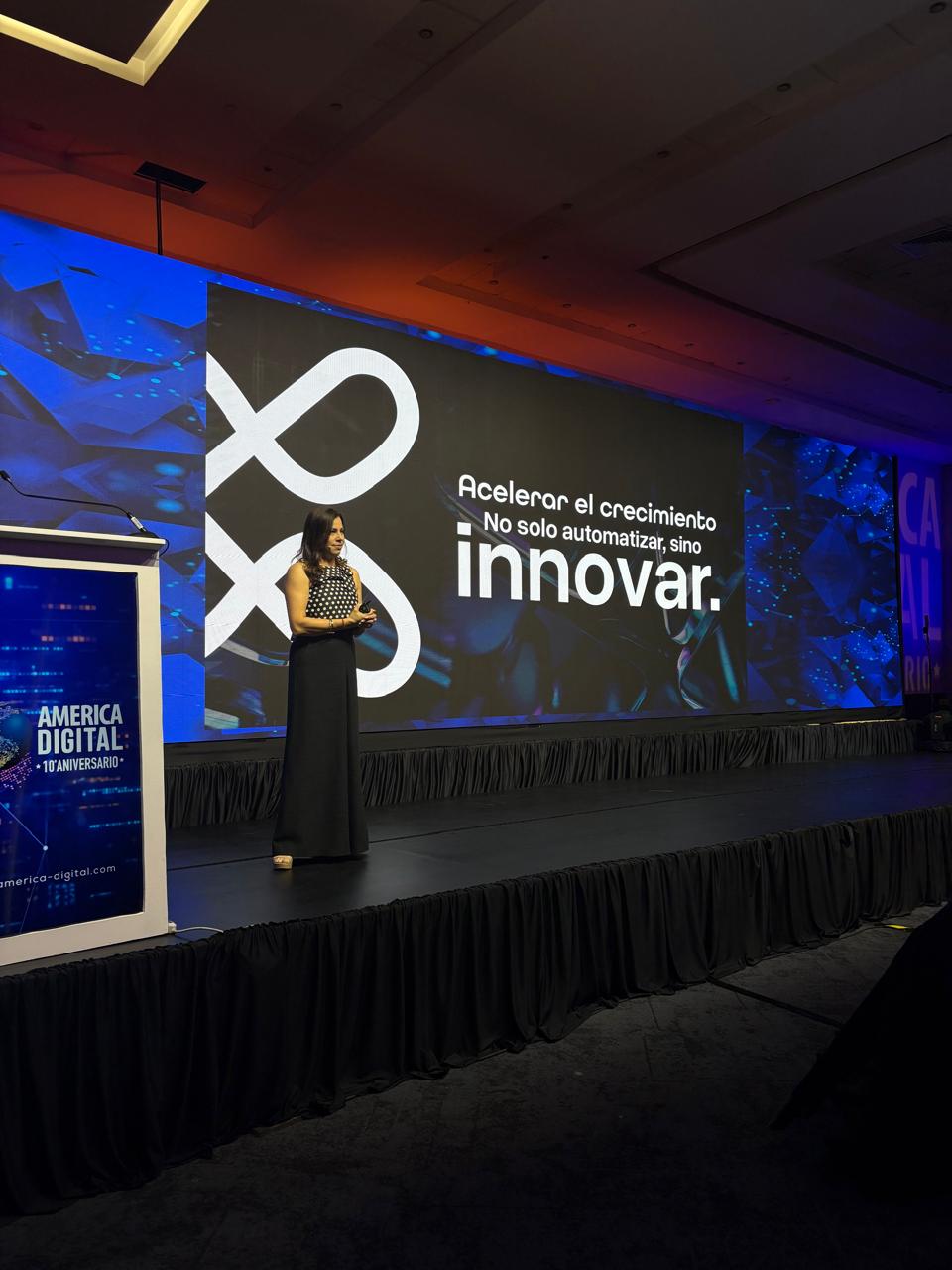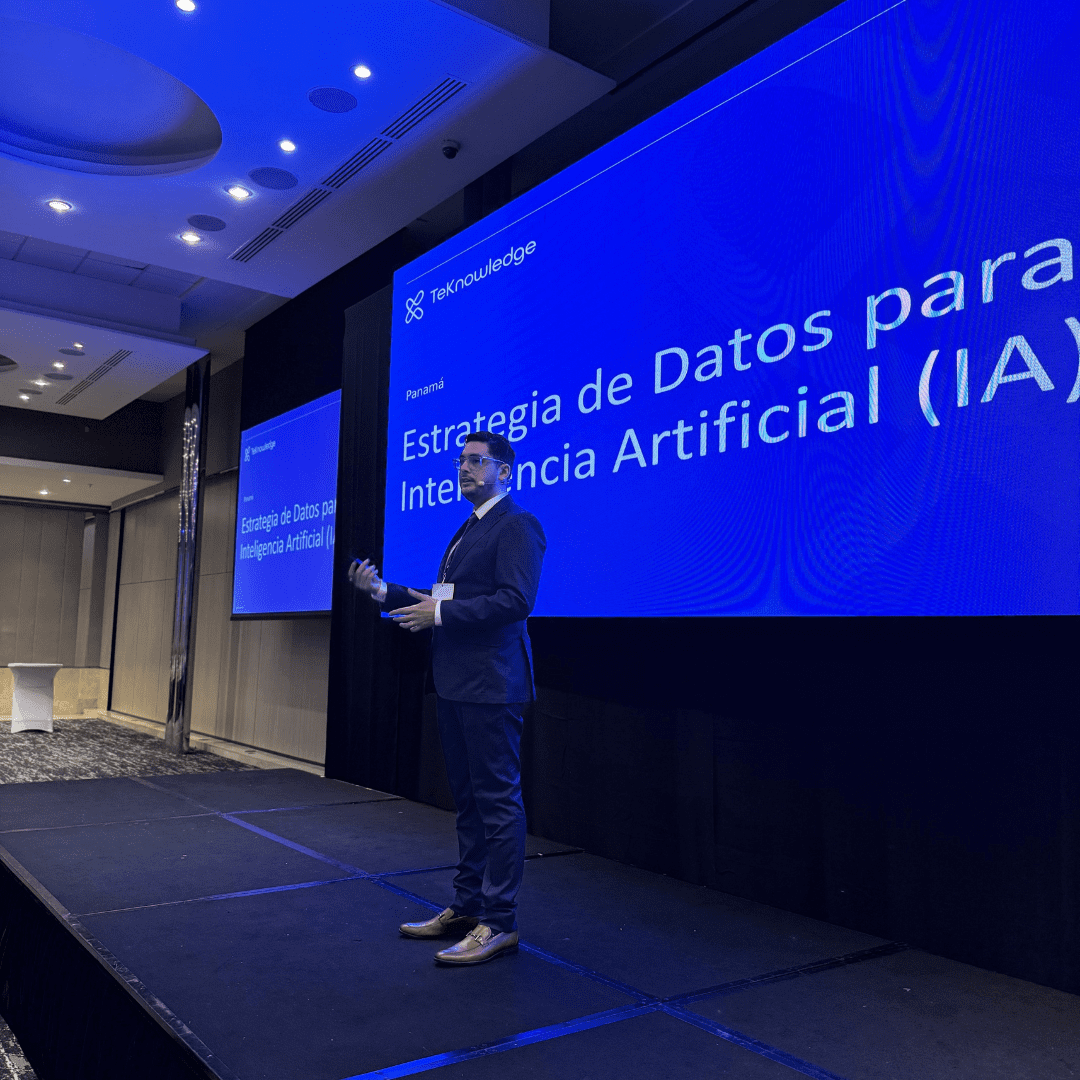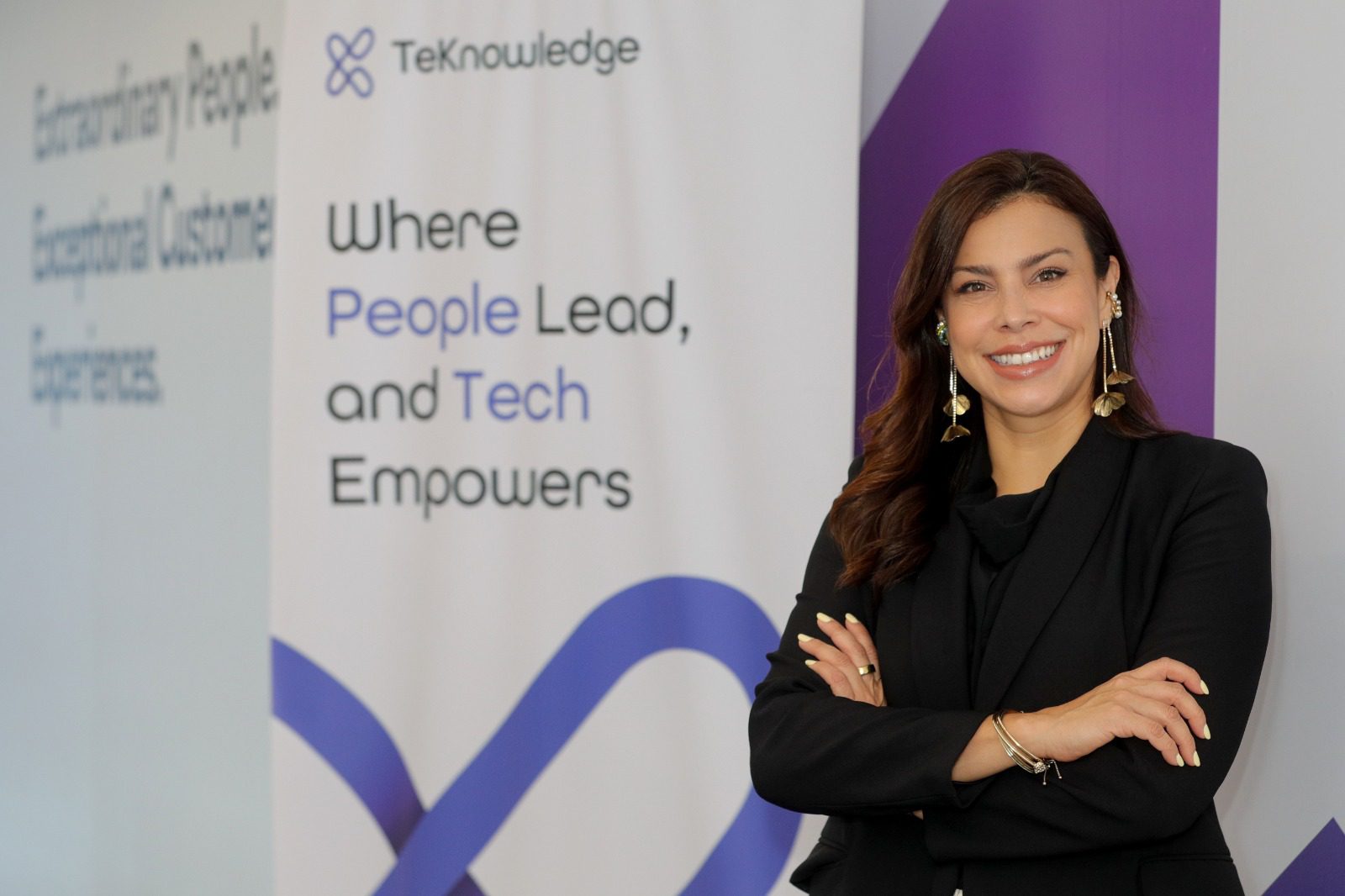Stay Ahead with Expert-Led Insights
Navigating Complexity. Driving Progress. Creating Lasting Impact.
Welcome to the TeKnowledge Insights hub! Here, you’ll find a blend of strategic perspectives, real-world case studies, and expert analysis designed to empower organizations to navigate challenges and seize new opportunities.
Explore the insights that matter most. Stay informed, gain new perspectives, and discover how businesses worldwide are unlocking new opportunities with TeKnowledge.
Stay Ahead with Expert-Led Insights
Navigating Complexity. Driving Progress. Creating Lasting Impact.
Welcome to the TeKnowledge Insights hub! Here, you’ll find a blend of strategic perspectives, real-world case studies, and expert analysis designed to empower organizations to navigate challenges and seize new opportunities.
Explore the insights that matter most. Stay informed, gain new perspectives, and discover how businesses worldwide are unlocking new opportunities with TeKnowledge.
All Categories
The latest developments, strategic partnerships and milestones.
- News & Company Updates
Dallas | Düsseldorf | London, July 24, 2025 – Cognigy, a global leader in AI-powered customer service solutions, and TeKnowledge, today announced a strategic partnership with TeKnowledge, a global tech services provider specializing in artificial intelligence, CX and cybersecurity solutions. Together, the companies will deliver agentic AI solutions globally that will enable enterprises to scale personalized, autonomous customer service across voice and digital channels.
As organizations shift from basic chatbots to fully capable AI Agents, Cognigy and TeKnowledge are teaming up to make execution faster, easier, and outcome-focused. The partnership combines Cognigy’s Agentic AI platform with TeKnowledge’s AI-first technology services expertise to bridge the gap between strategy and implementation.
“Enterprise leaders aren’t looking for more AI hype – they want real outcomes,” said Hardy Myers, SVP Global Partnerships at Cognigy. “With TeKnowledge, we have the expertise and scale to help our customers turn AI ambition into scalable agentic solutions.’
TeKnowledge brings over 6,000 professionals across 20+ countries, offering end-to-end AI-First Expert Technology Services. From strategy and deployment to security and adoption, every engagement is tailored to business objectives, operational complexity, and long-term adaptability, addressing the distinct but interdependent priorities of today’s enterprise leaders. The company has 19 hubs serving technology and public sector global customers.
“Enterprises today are under pressure to deliver more but faster, smarter, and at scale,” said Nidal Abou-Itaif, Chief Revenue and Transformation Officer at TeKnowledge. “From elevating customer experiences to modernizing operations and strengthening security, leaders are looking for real solutions that balance innovation with execution. This partnership with Cognigy unlocks the full potential of Agentic AI, helping organizations accelerate transformation while delivering measurable impact across the business.”
By aligning technology and execution, the partnership delivers:
· Accelerated time to value with prebuilt use cases and implementation frameworks
· Higher customer satisfaction through personalized, context-aware conversations
· Operational efficiency by deflecting Tier-1 inquiries and empowering agents
· End-to-end support from AI strategy to deployment and optimization
To explore how TeKnowledge and Cognigy are redefining humanized AI in the enterprise, visit teknowledge.com or cognigy.com.
About Cognigy
Cognigy is transforming the customer service industry with the most advanced AI Agent platform for enterprise contact centers. Its award-winning solution, Cognigy.AI, empowers enterprises to deliver instant, hyper-personalized, multilingual service on any channel. By integrating Generative and Conversational AI to create Agentic AI, Cognigy delivers AI Agents that redefine customer experiences, drive satisfaction, and support contact center employees in real-time. Over 1000 brands worldwide trust Cognigy and its vast partner network to create AI customer service agents for their contact center. Cognigy’s impressive worldwide customer portfolio includes Bosch, Nestlé, DHL, Frontier Airlines, Lufthansa Group, Mercedes-Benz and Toyota. For more information and to book a demo visit: www.cognigy.com. Follow the company on X (formerly Twitter) @Cognigy and on LinkedIn at https://www.linkedin.com/company/cognigy.
About Teknowledge
Founded in 2010, TeKnowledge provides expert technology services for AI, Customer Experience and Cyber Security that empower businesses and governments through technology. With a deep expertise, strong customer and people centric focus, and strategic partnerships, TeKnowledge has grown organically into a trusted partner for enterprises and governments worldwide across 19+ global hubs, supported by a team of 6000+ experts. Through its comprehensive services approach—spanning Advisory & Professional Services, Skilling & Adoption and Managed Services—TeKnowledge ensures seamless technology adoption and continuous progress for its customers. Visit Teknowledge.com
- Blog & Industry Trends
Agentic AI Is Overhyped and Underdelivering
As we race to adopt AI, a new risk is emerging agent washing. According to Gartner, this is the overuse, and misuse, of the term “agentic AI,” , a rebranding of simple automation or chatbots as intelligent agents: Gartner predicts that by 2027, over 40% of agentic AI initiatives will be scrapped due to inflated promises, immature solutions, and a lack of governance.
For CXOs driving digital transformation, this is a growing strategic fault line: investments are underway; reputations are on the line; and without a clear value focus and strong governance, AI risks becoming a drain on both CXO capital and credibility.
From Buzzwords to Business Value
To lead effectively in this environment, CXOs must pivot, and quickly. Forget the AI label and focus on business outcomes. Intelligent agents should be deployed not for novelty but to solve real, high-impact challenges. That calls for a disciplined, value-driven approach:
- Start with strategic intent. Define what your business needs to achieve before selecting AI tools. Prioritize use cases where autonomy drives measurable impact: decision-making, customer resolution, operational triage.
- Redefine autonomy. A true AI agent doesn’t just respond—it reasons, adapts, and acts with minimal oversight. Anything less is automation disguised as intelligence.
- Build in governance. Responsible autonomy requires oversight. Deploy agents with governance baked in: escalation paths, compliance frameworks, and real-time feedback loops.
- Measure what matters. Shift from activity metrics to outcome-based KPIs. Track time saved, cost avoided, satisfaction gains, and uptime improvements.
- Scale what works. Treat every pilot as a proving ground. Double down on what drives value and retire what doesn’t.
From Hype to Impact
As Gartner warns, a growing number of organizations are falling into the trap of agentic AI washing: mislabelling basic automation as intelligent agents. This leads to unmet expectations, stalled projects, and eroded trust. By 2027, over 40% of agentic AI efforts could be abandoned, not for lack of potential, but for lack of substance.
Agentic AI is already transforming operations. But unlocking its full promise requires moving beyond hype to execution. With deep expertise in AI, cybersecurity, digital skilling, and enterprise transformation, we partner with you leaders to steer clear of washing and build AI systems that are governed, outcome-driven, and built to scale.
Recognize the hype, skip the washing, and partner with us to build your agentic AI roadmap.
- Blog & Industry Trends
Despite the growing excitement around artificial intelligence, most enterprise AI pilots never make it past the proof-of-concept stage. This common hurdle reveals a hard truth: while starting with AI may be easy, scaling it is not.
In fact, according to recent AI readiness report, less than 30% of AI pilots make it into production, highlighting a persistent execution gap that continues to plague organizations across industries.
In this blog, we take a closer look at why so many AI pilots stall before reaching scale. Along the way, we’ll surface the hidden challenges that often go unnoticed, explore patterns we’ve observed across industries, and share insights drawn from helping organizations navigate the messy middle between experimentation and real-world impact.
Why Most AI Pilots Fail
AI pilots rarely fail because of the technology; they fail because the surrounding conditions aren’t ready. Here’s where things tend to go wrong and what to watch out for:
Unclear Business Objectives: Many pilots begin as shiny tech experiments with no clear KPIs or connection to strategic goals. Without measurable outcomes, it’s impossible to judge success or justify scale.
Data That’s Not Ready for AI: AI needs clean, connected, and accessible data. But too often, organizations start with fragmented, unstructured, or low-quality data that sabotages value before models can learn anything meaningful: a 2025 IDC survey found that 69% of AI leaders cite poor data quality and infrastructure as the #1 barrier to deployment.
Lack of Executive Sponsorship: Without C-level backing, pilots struggle to secure funding, cross-functional alignment, or visibility. One report reveals that companies with C-suite ownership of AI initiatives are 3x more likely to scale successfully, a clear indicator that leadership support is a difference-maker.
Tech-Led, Business-Detached Teams: When IT leads AI in isolation, solutions often miss the mark. Business units must be embedded in development cycles to ensure relevance, usability, and adoption.
No Plan Beyond the Pilot: Even technically sound pilots hit a wall if there’s no roadmap for production. Forrester’s 2025 TechPulse on AI suggests that only 22% of businesses currently have mature MLOPs capabilities to turn machine learning from isolated experiments into scalable, reliable systems that deliver real business value. It enables organizations to deploy, monitor, and update AI models efficiently ensuring performance stays aligned with evolving data and goals. Without MLOps, even the most promising AI pilots often fail to make it into production or stay there successfully.
Neglecting Ethics, Security & Governance: Ignoring issues like data privacy, compliance, or model bias can derail projects fast. Trust must be designed in from the start, not bolted on later.
Cultural Resistance: AI “codifies and scales” whatever culture it meets; it magnifies what’s already there. Teams that resist transparency, experimentation, or collaboration often stall adoption; a 2024 report suggests that organizations with strong AI change management strategies are 60% more likely to achieve ROI from AI deployments.
From Pilot to Production: The TeKnowledge Approach
At TeKnowledge, we help enterprises move beyond experimentation and into sustainable, scalable AI adoption. With over 6,000 AI-First experts across 19 global hubs, our transformation approach is both comprehensive and pragmatic.
It begins with aligning AI initiatives to measurable business outcomes, ensuring every project is anchored in real value. Our engineering and implementation teams build with scale in mind, designing robust architectures, embedding MLOps from the start, and integrating seamlessly with existing systems. But we also recognize that technology alone isn’t enough. That’s why we invest heavily in preparing people: equipping teams with the digital skills, tools, and confidence needed to work effectively alongside AI. Once deployed, we continue to optimize and support these systems through managed services that safeguard performance, security, and long-term value.
Partnerships amplify this impact. As a global Microsoft partner, we bring enterprise-grade Copilot and Azure integrations to life, combining AI, cloud, and governance at scale. Our collaboration with Genesys allows us to reimagine customer experience, embedding intelligent orchestration across contact centers and digital channels. And with Kore.ai, we close the AI execution gap by integrating conversational AI directly into enterprise workflows.
In short, we don’t just build AI pilots; we deliver trusted, production-ready solutions designed to grow with your business.
Fix the Failure Loop
AI pilots don’t fail because of a lack of potential but l due to misalignment, unreadiness, and a missing bridge to scale. But when built on strong foundations, clear business goals, healthy data, cultural support, and a plan for production, they can unlock transformative impact.
TeKnowledge brings the expertise, people, and proven approach to close the execution gap.
Ready to move from pilot to production? Connect with us
- Events & Webinars
At the AI, Tech and Business Summit by América Digital in Mexico City, our Latam Business Lead, Jeannie Bonilla, delivered a keynote that raised important questions about the future of work, innovation, and the real impact of artificial intelligence.
Jeannie didn’t speak about threats or replacement. She spoke about redefinition—about how collaboration between human and artificial intelligence isn’t just possible, it’s essential. Organizations that learn to build with both will be better positioned for sustainable growth.
Today, AI is no longer just about adopting tools or automating processes. It’s about redesigning how we operate, how we make decisions, and how we create value. The world’s frontier firms, those at the leading edge—have already made AI a structural part of their strategy. They see it not as a tool, but as a catalyst that transforms their entire business model.
This future isn’t distant or exclusive to big tech. In Latin America, we’re already seeing it unfold. Companies like Yalo, Nubank, and Mercado Libre are breaking paradigms through digital, conversational, and data-driven innovation. They’ve understood that innovating with AI means more than automation—it means challenging the status quo and designing what’s next.
At TeKnowledge, we believe accelerating with AI also means evolving leadership. It’s no longer enough to manage people—we must learn to orchestrate hybrid systems where humans and smart assistants collaborate. We move from directing tasks to creating conditions where machines also think, learn, and contribute.
With our AI-first philosophy, we help companies and governments make this shift. We turn technological potential into real impact by aligning strategy, talent, and execution. Because the real question is no longer whether to use AI—but how to design with it from the foundation up.
As Jeannie reminded us at the beginning and end of her talk: the future belongs to those who know how to learn and collaborate with both natural and artificial intelligence. That’s exactly the future we’re building at TeKnowledge.
- Thought Leadership
The AI Execution Challenge
There’s no question about it, Artificial Intelligence (AI) is transforming how businesses operate, improve customer interactions, and foster innovation. Yet, despite recognizing AI’s vast potential, many organizations struggle to fully integrate and scale it within their daily operations. This “execution gap” is exactly what the partnership between TeKnowledge and Kore.ai aims to bridge.
In today’s rapidly evolving digital landscape, enterprises face a fundamental conundrum: while AI technologies have reached unprecedented sophistication, the gap between AI ambition and real- world execution is still a reality that many enterprises are faced with.
While we’re surrounded by headlines about AI breakthroughs, many of us in enterprise technology are facing a frustrating reality in what I call “The Pilot Paradox” running impressive demos that never translate into enterprise-wide transformation. We have brilliant AI pilots running in isolation, executive teams asking when we’ll see real business impact, which needs to be delivered at scale.
The partnership between Kore.ai and TeKnowledge isn’t just another vendor, partner announcement it’s a recognition that successful AI transformation requires more than just great technology. It needs a fundamentally different approach.
Why Most AI Transformations Fail: The Missing Dimensions
After years of watching AI implementations succeed and fail, I’ve learned that technology is just one piece of the puzzle. The organizations that truly succeed with AI get five critical dimensions right:
Technology is the foundation, but it’s not enough on its own. You need a platform that can evolve from simple chatbots to sophisticated multi-agent orchestrations. Kore.ai has cracked this code with their AI Agents Operating System, moving enterprises from guided intelligence through to full autonomy while maintaining human oversight.
Data Readiness is where most projects stumble. Your AI is only as good as your data, and enterprise data is messy scattered across systems, trapped in silos, mixing structured databases with unstructured documents. TeKnowledge’s expertise in data strategy and integration becomes crucial here, ensuring your AI agents have access to clean, relevant, and contextual information.
Cybersecurity can’t be an afterthought anymore. We’re not just protecting data; we’re securing AI models against adversarial attacks, preventing bias, and ensuring our AI agents don’t become security vulnerabilities. TeKnowledge’s cybersecurity practice understands these unique challenges and builds protection into every layer of the AI stack.
Governance separates successful AI implementations from chaos. As we move toward super-agents managing multiple AI systems, we need frameworks that ensure accountability, transparency, and regulatory compliance. This isn’t just about policies—it’s about embedding governance into the platform architecture itself.
Digital Skills might be the biggest gap of all. Your people need to understand how to work alongside AI agents, how to prompt them effectively, and how to maintain and evolve these systems over time. TeKnowledge’s comprehensive skilling programs ensure your teams can grow with your AI capabilities.
A Strategic Convergence: Platform Intelligence Meets Expert Services
The partnership between Kore.ai, a global market leader, expert in conversational, enterprise AI, and TeKnowledge, a leader in technology services including AI, customer experience, and cybersecurity, combines our strengths to help businesses scale AI smoothly and effectively.
Kore.ai brings to this partnership a mature, agent-first platform that has evolved beyond the traditional chatbot paradigm. Kore.ai has pioneered the transition from guided intelligence to full autonomy through their AI Agents Operating System, spanning from
reliable conversational bots to sophisticated autonomous agents capable of human-like interaction.
Kore.ai offers a user-friendly yet powerful AI orchestration platform designed to boost productivity, efficiency, and customer service. Their technology easily understands what users want, communicates clearly with different systems, and performs tasks independently. This flexibility helps businesses integrate Kore.ai’s solutions into their existing systems, adapting quickly to changing technology.
Kore.ai provides a comprehensive solution stack which is built around 3 major pillars:
-
- AI for Service – Enhances customer experience through intelligent virtual assistants, agent support, and contact center optimization
- AI for Work – Increases employee productivity via workplace assistants (HR, IT, internal ops) and enterprise workflow automation.
- AI for Process – Automates end-to-end business processes with advanced AI-driven orchestration.
Their platform addresses the three areas where businesses need AI most: reimagining work (helping employees be more productive), reimagining service (creating better customer experiences), and reimagining process (automating complex workflows). But here’s what matters, they’ve built this with enterprise realities in mind.
TeKnowledge complements Kore.ai by providing strategic guidance, advisory and precise execution to ensure AI projects deliver real business value. With over 6,000 experts across 19 global hubs, TeKnowledge makes sure AI implementations are strategic, measurable, and adaptable. We also stress and recognize the importance of being prepared with quality data, strong cybersecurity, effective governance, and digital skills, viewing these as essential for successful AI transformations beyond just technology.
Creating Real, Lasting Impact
What makes this partnership different is our shared focus on human-centric AI. Both TeKnowledge and Kore.ai believe AI should simplify interactions, improve business operations, and deliver clear, measurable benefits, such as improved efficiency, exceptional customer experiences, and innovative solutions.
Gartner predicts that by 2028, 95% of businesses will integrate generative AI into their daily operations, a significant increase from just 15% in 2025. This rapid growth emphasizes the need for businesses to strategically adopt AI. Gartner also notes the rapid advances in multimodal and agentic AI, promising to transform automation and improve user interactions significantly. The TeKnowledge-Kore.ai partnership helps organizations stay ahead of these trends.
Similarly, Boston Consulting Group (BCG) emphasizes the crucial role of CEOs and leadership in successfully implementing AI, warning that disconnected AI solutions—or “AI islands”—can limit potential benefits. This partnership addresses these issues directly by providing an integrated, scalable, and well-governed AI ecosystem, enabling businesses to fully realize their AI investments.
The Partnership Synergy: Providing End-to-End Solutions
Here’s why this partnership excites me as a CTO it addresses the complete AI transformation challenge, not just the technology piece.
From Fragmentation to Integration: The partnership addresses the AI Chaos which many enterprises are facing today, the overwhelming array of hyperscalers, open source vendors, Agent AI, Intelligent Virtual Assistant solutions, CCaaS and enterprise ecosystems that create decision paralysis. By combining Kore.ai’s unified platform with TeKnowledge’s structured implementation methodology, enterprises gain a clear path from concept to capability to business value
Skills That Scale: TeKnowledge’s skilling programs mean your people can actually use and evolve the AI capabilities. This isn’t just about using AI, it’s about building internal capabilities to innovate with AI continuously.
Security by Design: With AI models becoming potential attack vectors, TeKnowledge’s cybersecurity expertise ensures protection is built in from the start. We understand AI-specific threats like prompt injection, data breach and leakage, model poisoning, adversarial attacks, and bias exploitation.
Data That Works: TeKnowledge helps organizations get their data ready for AI, not just accessible, but clean, contextual, and structured for use effectively within enterprise AI orchestration.
Governance That Scales: As you move from single-purpose chatbots to orchestrated super-agents, governance becomes critical. The partnership provides frameworks that ensure accountability while enabling innovation.
The Super-Agent Future: What’s Coming Next
In the coming year, we will witness the rise of what I call “Super-agents” Powerful AI operating systems that coordinate multiple AI agents simultaneously. These advanced systems will significantly enhance organizational decision-making and problem-solving capabilities, guiding enterprises smoothly from basic intelligence to partial or full autonomy, always within human oversight. Imagine having a team of highly skilled
professionals tirelessly working round the clock, resolving issues, streamlining processes, and executing transactions seamlessly, without downtime or interruptions.
The growth in AI agent autonomy will revolutionize industries by optimizing networks, enhancing fraud detection, streamlining patient care, personalizing customer experiences, boosting employee productivity, and automating routine tasks. This shift allows employees to focus on more strategic, higher-value tasks, leading to faster decision-making, better performance, and accelerated business operations across all sectors, from product development, marketing to sales and customer support.
We’re also heading towards a future defined by AI-first customer experiences. AI will significantly improve customer interactions through complete, end-to-end orchestration, providing a personal assistant experience across sectors like banking, travel, healthcare, and retail, offering assistance, solving problems, and enabling seamless transactions around the clock, without us even noticing we’re interacting with AI.
Kore.ai offers the platform for this AI operating system future, enabling organizations to build, maintain, measure, and manage AI agents, systems, and orchestration. While Kore.ai provides the orchestration platform for these super-agents, TeKnowledge ensures organizations have the expertise and support to implement, govern, and evolve these sophisticated AI ecosystems responsibly with real business value.
Why This Partnership Matters Now
As we navigate the AI revolution, the question isn’t whether to adopt AI, it’s how to do it effectively at scale. The Kore.ai and TeKnowledge partnership provides a proven path that addresses the complete transformation challenge.
For technology leaders, this partnership offers what we’ve all been looking for: a comprehensive approach that combines mature platform capabilities with the strategic services, security expertise, data readiness, governance frameworks, and skills development necessary for sustainable AI transformation.
The reality is that successful AI transformation requires both technological sophistication and human expertise. It needs platform intelligence and strategic services. It needs innovation and governance. It needs automation and human insight.
This partnership delivers all of that; not as separate services you have to coordinate, but as an integrated approach designed to help enterprises move from AI ambition to AI impact. And in a world where the pace of AI innovation continues to accelerate, having partners who can help you navigate both the technical and human dimensions of transformation isn’t just valuable, it’s essential.
The future belongs to organizations that can harness AI’s transformative potential while maintaining the human-centred approach that drives real business value. The Kore.ai and TeKnowledge partnership provides exactly that foundation for success.
- Thought Leadership
Long before electricity or algorithms, the ancient Greeks told a story about Prometheus, the Titan who defied the gods by stealing fire from Mount Olympus and giving it to humanity. Until that moment, humans lived in darkness but with fire, they could cook, forge, build and begin to control their destiny. Even more, this fire symbolized the raw power that shape our world: knowledge, creativity and invention. Prometheus’ gift was transformative but came at a cost.
Zeus, king of the gods, was enraged by this act of rebellion and punished Prometheus for eternity: Prometheus was chained to a remote mountain, where an eagle would devour his liver each day, only for it to regenerate overnight, repeating the torment endlessly. Zeus’ punishment wasn’t for giving humanity warmth or light, but for giving them power without permission, without a plan, and without ensuring they were ready for it. A thousand of years old story still echoes with me today; now we face a similar moment where AI is our modern fire.
We’ve created something powerful: analyze massive datasets, generate insights, automate decisions, and learn and adapt on its own. Like fire, AI has the potential to accelerate progress in ways we’re only beginning to understand. But also, like fire, it doesn’t come out of the box with wisdom or intention; it doesn’t know what matters; AI reflects what we give it and scales what we teach it.
In many organizations, AI is being introduced with great enthusiasm: new platforms, fresh pilots, powerful models. But often, the outcomes don’t quite match the promise. Projects stall and insights get ignored while models underperform or fail to scale. The problem, more often than not, isn’t the technology but the environment it’s introduced into.
AI doesn’t transform organizations but scales them. It reflects the systems, behaviours, and dynamics already in place so if your teams don’t collaborate, your AI won’t learn across silos. If knowledge in your environment is hoarded, your models will miss the context that matters. If decisions are made behind closed doors, AI will simply accelerate the same inefficiencies. AI won’t fix what’s broken but will codify it and make it harder to change.
That’s why culture, not data and infrastructure, is the real foundation of an effective AI strategy. If you want intelligence to flow through your organization, your people need to do the same. If you want learning to accelerate, your culture must support reflection, experimentation, and shared understanding. Without these conditions, AI is just another tool presenting risks in automating dysfunction rather than solving it.
Organizations that are seeing meaningful returns from AI aren’t necessarily the ones with the most technical sophistication but the ones where people communicate openly, where knowledge moves without friction, and where learning is valued as much as efficiency. In these environments, AI it enhances human thinking rather than replacing it and becomes part of the way decisions are made.
Creating that kind of culture requires intentionality. This means examining how knowledge is shared across teams, how insights are surfaced, and whether failure is treated as a threat or an opportunity to grow. It means creating space for real conversations between technical and non-technical teams, so that context drives decision alongside computation and the language of AI is translated in ways that are accessible, engaging and meaningful.
And perhaps most importantly, it means asking what kind of behaviours you culture rewards: if you celebrate only control, certainty, and speed, your teams will hide uncertainty and resist change. But if you reward curiosity, reflection, and collaborative problem-solving, your AI efforts will benefit from the full intelligence of your people.
Right now, most AI systems still require human supervision: we build them, feed them data, guide their outputs. But that won’t always be the case. AI is evolving to become more autonomous, more capable of self-learning, and more deeply embedded in the systems we rely on. In time, it will make decisions we don’t fully understand, and it will do so at a scale and speed beyond what we can manually oversee.
When Prometheus brought fire down from Olympus, he set something irreversible in motion. Once that power was in human hands, it could no longer be contained and the same is true of AI. We’ve already released it into the world and what remains is to decide what kind of intelligence we want it to become and what values we want it to carry forward.
AI won’t grow wise on its own; it will continue learning from our data, as well as our habits, our structures and blind spots. If we embed short-term thinking, it will optimize for short-term outcomes. If we normalize exclusion or bias, it will reproduce those dynamics at scale. But if we teach it in environments grounded in trust, transparency, and accountability, it has the potential to amplify our best thinking.
Prometheus gave humanity fire, and in doing so, accelerated our evolution. But he also gave us a warning: that power alone is never enough. Without foresight and responsibility, even the brightest gift can become dangerous. Today, we stand at a similar threshold. AI is here and its power is real. But its value depends entirely on the culture it grows within: if we want it to drive progress alongside productivity and insight alongside automation, then we need to focus on the human systems surrounding it. It won’t be AI that transforms our companies or communities; it will be us the people who shape it, guide it, and decide what it learns to value.
- Events & Webinars
As part of our participation in the AI Festival organized by Connecta B2B in Panama, we led a key session within our AI Mastery Series, where we explored one of the most essential, and frequently underestimated, drivers of successful AI implementation: a robust and strategic approach to data.
This session was designed for business leaders from diverse industries across Panama—from financial services to logistics, retail to telecommunications—who are exploring how AI can transform their operations, improve customer experiences, and unlock new revenue streams. Our message to them was clear: if AI is the engine, data is the fuel—and the quality of your journey depends on the quality of that fuel.
A Strategic Shift: From Technology Project to Business Asset
We challenged leaders to rethink how they view data: not as a by-product of operations, but as a strategic business asset. A successful data strategy is not just about collecting information—it’s about making that data usable, trustworthy, and aligned with business outcomes. During the session, we walked through the AI-First Enterprise Framework, where data acts as a foundational enabler, alongside security, governance, and scalable cloud infrastructure.
We outlined four pillars that should form the bedrock of any data strategy aiming to support AI initiatives:
- Data Collection – Capture what truly matters. Not all data is valuable, and noise can be more harmful than silence.
- Data Quality – Ensure accuracy, consistency, and relevance. AI models trained on poor data produce poor decisions.
- Data Architecture – Build scalable and secure systems that support both experimentation and enterprise deployment.
- Data Governance – Set clear rules around access, ethics, compliance, and ownership from day one.
These elements resonate with executives across sectors—whether they’re launching AI pilots in logistics, automating processes in manufacturing, or applying predictive analytics in retail.
Several participants raised pressing questions around data privacy, legacy systems, and internal barriers to execution. These challenges are common across industries and include:
- Data silos that hinder visibility and coordination
- Weak alignment between data initiatives and KPIs
- Limited internal data literacy across business functions
- Regulatory and ethical blind spots
Our guidance: Start with what’s measurable. Identify the most critical data assets, connect them to operational or customer outcomes, and build cross-functional teams that understand both the technical and business context.
For business leaders, one of the most actionable takeaways was the need to champion a data culture from the top. While tools and technologies play a role, lasting transformation comes when organizations prioritize transparency, accountability, and shared understanding of how data drives decisions.
We encouraged executives to lead with purpose—equipping teams with both the tools and the narrative that shows why responsible data use is good for business, customers, and society.
Final Takeaway: Scale with Purpose, Lead with Data
To the business leaders we met in Panama: your AI journey doesn’t start with a model—it starts with a question. And the answer lives in your data. Whether you’re aiming for automation, personalization, or competitive intelligence, your ability to scale AI will depend on how seriously you treat your data strategy.
This is just the beginning. Through our AI Mastery Series, we’ll continue to partner with visionary leaders across Latin America to unlock AI’s full potential—securely, ethically, and strategically.
- News & Company Updates
Dubai, UAE – June 11, 2025 – Kore.ai, a global leader in enterprise AI technology, today announced a strategic partnership with TeKnowledge, a global provider of expert technology services across AI, Customer Experience, and Cybersecurity. This partnership is designed to help enterprises bridge the widening gap between AI ambition and real-world execution, enabling them to scale AI rapidly and effectively, transforming scattered pilots into organization-wide impact.
Kore.ai delivers an advanced, innovative, secure and scalable agent platform and business solutions required to automate and enhance customer service, business operations, and workplace productivity, while TeKnowledge delivers the strategic expertise, disciplined execution, and ongoing support needed to drive real, impactful transformation. Together, they unlock measurable business value with AI and ensure lasting results through structured knowledge transfer and robust team training, empowering organizations to build internal expertise and fuel ongoing innovation.
Kore.ai’s secure, scalable, and flexible agent platform enables enterprises to automate and enhance customer service, operations, and workplace productivity through intelligent, purpose-built AI solutions. Its open, enterprise-ready architecture ensures seamless integration and flexible deployment. TeKnowledge complements this with its AI-First Expert Technology Services model, combining strategic guidance, disciplined execution, and structured enablement to overcome delivery challenges and build lasting internal expertise. Together, Kore.ai and TeKnowledge deliver measurable business value and sustained innovation, balancing rapid transformation with control and long-term impact.
“We are focused on helping enterprises reimagine business with AI at scale. TeKnowledge is an ideal partner in that they bring the expertise, scale, and service depth that help accelerate our vision for clients,” said Raj Koneru, CEO of Kore.ai. “We’ve found alignment not only in technology, but in mindset—a shared belief that AI must be human-centered, agile, and deeply connected to business value. This partnership brings together two ecosystems built around customer success. Together, we’re helping enterprises operate smarter and achieve speed of business.”
“At TeKnowledge, we’ve always believed that lasting transformation begins with clarity about what’s possible, what matters to the customer, and what it takes to execute at scale,” said Nidal Abou-Ltaif, Chief Revenue and Transformation Officer at TeKnowledge. “Kore.ai brings not only platform strength, but also a deep understanding of enterprise challenges and a clear vision for what intelligent experiences should look like. This is a partnership of shared values: innovation with purpose, execution with precision, and a commitment to delivering AI that serves people, not just processes.”
As AI becomes the single most transformative force in enterprise technology, organizations are moving from exploration to action. According to Gartner, by 2026, over 80% of customer service and support organizations will apply generative AI to improve agent productivity and customer experience. Yet many still struggle to scale beyond pilots and disconnected initiatives. The partnership between Kore.ai and TeKnowledge aims to solve this by offering an integrated approach—from platform to execution, from concept to capability.
“This is more than a technology integration—it’s a strategic convergence,” said Zeus Kerravala, Principal Analyst, ZK Research. “Kore.ai delivers one of the most advanced and adaptable platforms in the market, particularly in automating and elevating customer and employee experience. TeKnowledge adds the transformation layer that’s essential in complex environments,with executional discipline, cross-sector expertise, and long-term vision. The completeness of the model stands out: this partnership helps organizations move with the speed, openness, and alignment that modern enterprises require.” To learn how to leverage Kore.ai solutions with TeKnowledge services, more information here.
About Kore.ai
Kore.ai is a leader in enterprise AI with over a decade of experience in helping large enterprises realize business value through the safe and responsible use of AI. It provides comprehensive offerings for AI work, process automation and customer service use cases coupled with an AI agent platform with no-code and pro-code tools for custom development and deployment at enterprise scale. Kore.ai takes an agnostic approach to model, data, cloud and applications used, giving customers freedom of choice. Trusted by over 500 partners and 450 Global 2000 companies, Kore.ai helps them navigate their AI strategy.
The company has a strong patent portfolio in the AI space and has been recognized as a leader and an innovator by top analysts. Headquartered in Orlando, Kore.ai has a network of offices to support customers in India, the UK, the Middle East, Japan, South Korea, and Europe. Visit Kore.ai to learn more.
About TeKnowledge
Founded in 2010, TeKnowledge provides expert technology services for AI, Customer Experience and Cyber Security that empower businesses and governments through technology. With a deep expertise, strong customer and people centric focus, and strategic partnerships, TeKnowledge has grown organically into a trusted partner for enterprises and governments worldwide across 19+ global hubs, supported by a team of 6000+ experts. Through its comprehensive services approach—spanning Advisory & Professional Services, Skilling & Adoption and Managed Services—TeKnowledge ensures seamless technology adoption and continuous progress for its customers.
Media contact: iman.ghorayeb@teknowledge.com
- Events & Webinars
By: Jeannie Bonilla, LATAM Business Lead at TeKnowledge
28th May 2025, San Salvador, El Salvador
This week, I had the opportunity to speak at the first AI Mastery Series Workshop taking place in Central America, El Salvador was the first location where TeKnowledge hosted the workshop. I’ve delivered many sessions over the years, but this one stood out. We didn’t just talk about how AI works, we explored what it means to use it responsibly.
In a room filled with senior executives from both the private and public sectors—people facing AI-related challenges daily—we tackled one of the most important and often overlooked questions in tech: How do we ensure AI serves people fairly, safely, and transparently?
The Questions That Matter
AI is moving fast. In El Salvador and across Latin America, it’s being used in everything from public services and healthcare to financial systems. This growth brings huge potential—but also serious responsibility. That’s why one of the questions we circled around for most of the session was:
If AI is making decisions that affect people’s lives, who takes responsibility when something goes wrong?
And equally important: What frameworks or principles should guide us when designing and using these systems?
To answer that, we focused on four key areas of ethical AI that reflect the same values we expect in human decision-making. The difference now is that we have to embed them into systems, processes, and data.
- Fairness
Human comparison: Avoiding discrimination in hiring or services.
When a person hires someone or makes a service decision, they (ideally) focus on merit—not race, gender, or background. But people have unconscious biases, and when AI is trained on data reflecting those biases, it can amplify them at scale.
If a company has mostly hired men in the past, an AI trained on that history might begin to prioritize male candidates, without being explicitly told to.
Just like we ask people to challenge their assumptions, we must audit and test AI systems for bias. Fairness isn’t automatic; it must be designed and maintained.
- Transparency
Human comparison: Being able to explain a decision.
If a loan application is denied by a human, you can usually ask why and get an explanation. But with AI, decisions can come from a black box, using complex algorithms that no one can easily explain.
An AI might deny a person access to a medical procedure or financial product, and neither the user nor the provider can clearly explain the reason.
People deserve to understand AI decisions. Transparency means making models and processes interpretable—not just for developers, but for those affected as well.
- Privacy
Human comparison: Respecting confidentiality.
We expect doctors or public officials to protect our personal information, but AI systems often rely on large-scale data collection, and privacy can become an afterthought.
For example, an agentic AI might collect voice recordings beyond what’s needed, or personal data may be used to train models without explicit consent.
Privacy must be intentional. Ethical AI requires data minimization, informed consent, and strong safeguards, especially in regions where laws are still catching up.
- Accountability
Human comparison: Owning the outcome of a decision.
When a human makes a poor decision, they can be held accountable. But who is to blame when AI makes a mistake? Is it the developer? The manager? The company?
A predictive system might wrongly flag someone as high-risk for a loan or a crime, and blaming “the system” isn’t good enough.
Clear ownership across every stage of the AI lifecycle must be defined. Someone—a human—must always be answerable. Responsibility doesn’t disappear with automation; it just shifts.
Ultimately Human
El Salvador has a unique opportunity right now. As the country builds out its digital capabilities, it can choose not only to adopt the latest tools, but also to lead with integrity and care. The leaders in the room understood this. They brought real curiosity to the table, asking how to protect people’s rights, earn trust, and create solutions that are safe and inclusive from the very beginning. They valued progress that is shared, trusted, and sustainable.
If you’re working with AI—whether you build it, manage it, or make decisions about where it’s used—ethics is your responsibility too. We can’t afford to leave it to chance or to someone else.
The systems we create today will shape people’s lives tomorrow.
About the AI Mastery Series
The AI Mastery Series is a month-long initiative by TeKnowledge to bring meaningful conversations about AI to key leaders across Latin America. It began in El Salvador, and will continue through Costa Rica and Mexico, creating space for reflection, learning, and leadership around responsible innovation.
Follow the journey via #AIMasterySeries, stay up to date by following TeKnowledge, and reach out if you’d like to take part in a future session.
